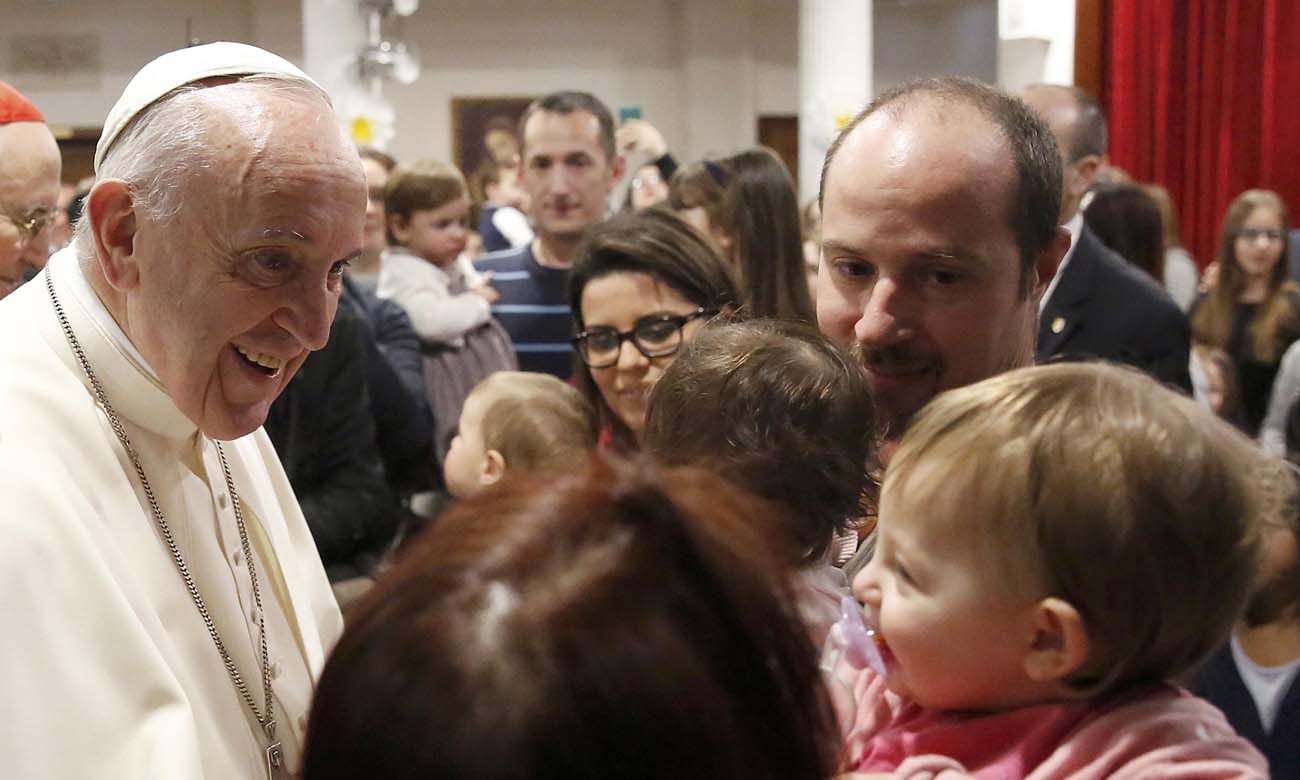ROME (CNS) — Witches don’t really exist, so they can do no harm, Pope Francis told a young girl, but gossip, sin and evil exist and they hurt people every day.
“What frightens me?” the pope asked, repeating the question posed by Sara, one of the children at the Rome parish of St. Magdalene of Canossa. “I’m frightened when a person is bad; the wickedness of people” is scary.
(See a related video.)
Spending close to four hours at the parish March 12, Pope Francis answered questions from the children, met with the older and sick members of the parish, spent time with parents whose babies have been baptized in the past year and with the Canossian Sisters, whose founder is honored as the parish’s patron saint.
Before celebrating an evening Mass, the pope also heard confessions.
[hotblock]
He had told the children that the “seeds of wickedness” lie within each human being, but that God is always willing to forgive those who are sincerely sorry for their sins.
Sara had told him she’s afraid of witches, but Pope Francis told her that witches don’t really exist and those who claim to be able to cast spells are lying.
What is really frightening, the pope said, is the harm caused when people choose to sin, a choice that often begins small. “And it frightens me when in a family, neighborhood, workplace, parish — or even the Vatican — there is gossip. That’s scary.”
“You have heard or seen on TV what terrorists do? They throw a bomb and run,” he said. “Gossip is like that. It’s throwing a bomb and running away. Gossip destroys” people and reputations.
In his homily at the Mass, Pope Francis described sin as being ugly, an offense against God and “a slap” to God’s face.
“We are used to talking about other people’s sins. It’s an ugly thing to do,” the pope said. Instead, people need to look at their own sins and at Jesus, who took upon himself the sins of all humanity.
[hotblock2]
“This is the path toward Easter, toward the resurrection” where Jesus’ face will shine like it did at the transfiguration.
But Christians also need to gaze at the crucifix and at the face of Jesus “disfigured, tortured, despised, bloodied by the crown of thorns” because he loved humanity so much that he took on the sins of the world and “paid so much for all of us.”
The face of Jesus, he said, “encourages us to ask forgiveness for our sins and not to sin so much. It encourages us most of all to trust because if he has made himself sin and has taken on our sins, he is always ready to forgive us. We just need to ask him.”
PREVIOUS: Priests and marriage: Pope’s response not so new after all
NEXT: Mouth shut, ears open can make the world a better place, pope says



Share this story